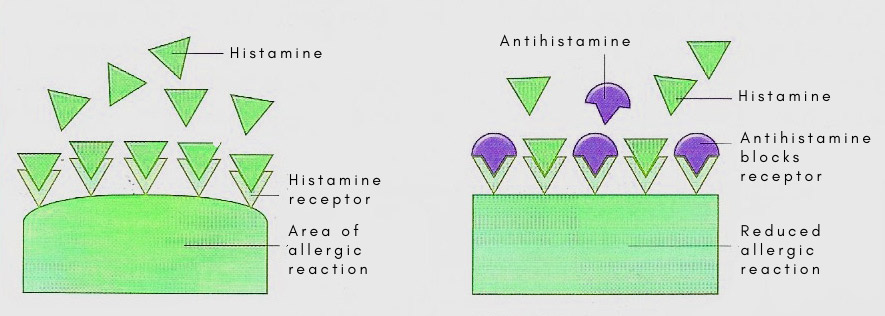antihistamine

Left: Histamine is released in response to an allergen and attaches to sites on tissue cells known as histamine recepors. This causes an allergic reaction in the tissue. Right: The antihistamine drug occupies some of the histamine receptors thereby preventing histamine from attaching to them. This reduces the severity of allergic symptoms..
An antihistamine is any of a group of substances that block the effects of histamine, a chemical released during allergic reactions (see allergy). Antihistamines are used to relieve the symptoms of hay fever (allergic rhinitis) and hives (urticaria) and other rashes. They are sometimes used in cough and cold remedies because they dry up a runny nose and suppress the nerve centers in the brain that trigger the cough reflex. They are also used in antiemetic drugs, because they suppress the vomiting reflex.
Antihistamines are usually taken or administered orally but may be given by injection in an emergency to aid in treating anaphylactic shock (a life-threatening allergic reaction).
Types of antihistamine
How antihistamines work
Antihistamines block the effect of histamine on tissues such as the skin, eyes, and nose. Without treatment, histamine dilates (widens) capillaries, resulting in redness and swelling of the surrounding tissue due to the leakage of fluid from the circulation. Antihistamines also prevent histamine from irritating nerve fibers, which would otherwise cause itching.


